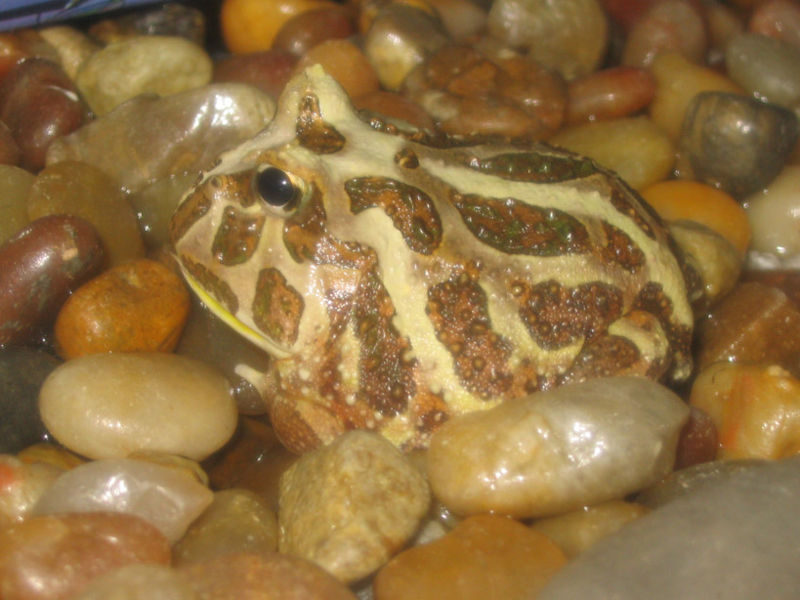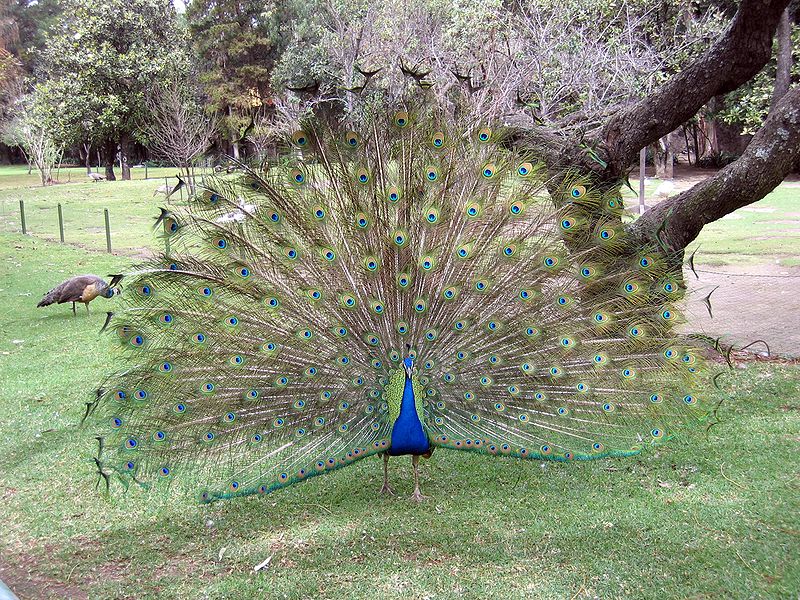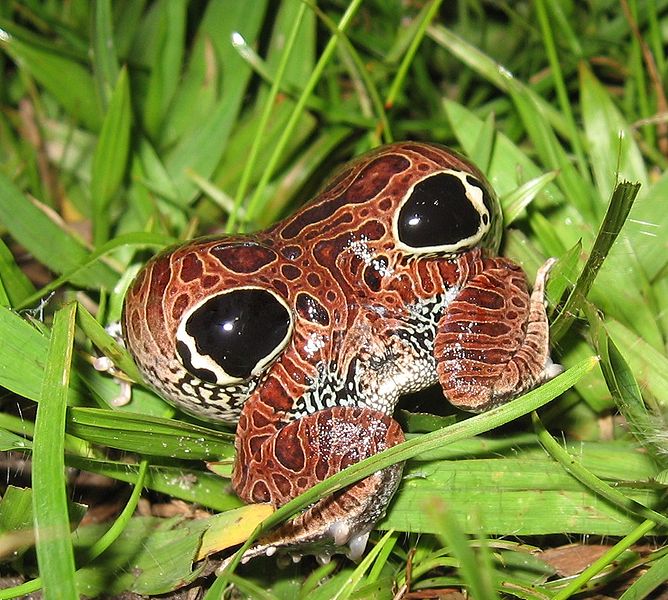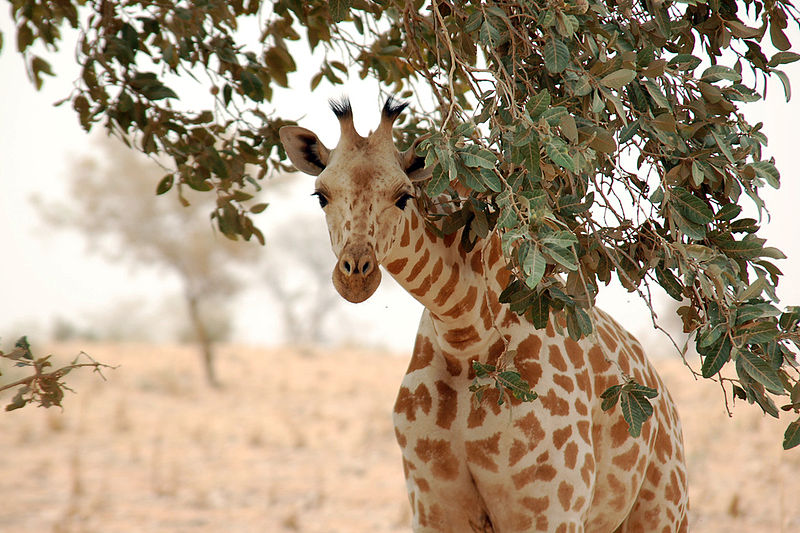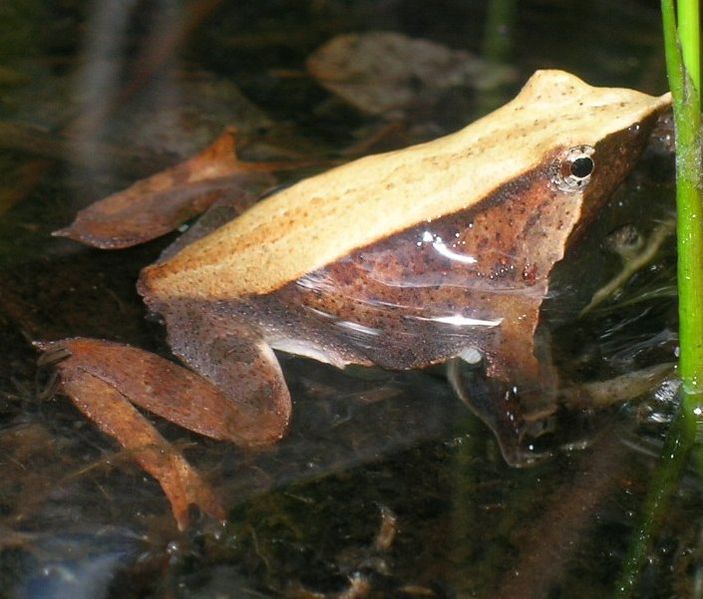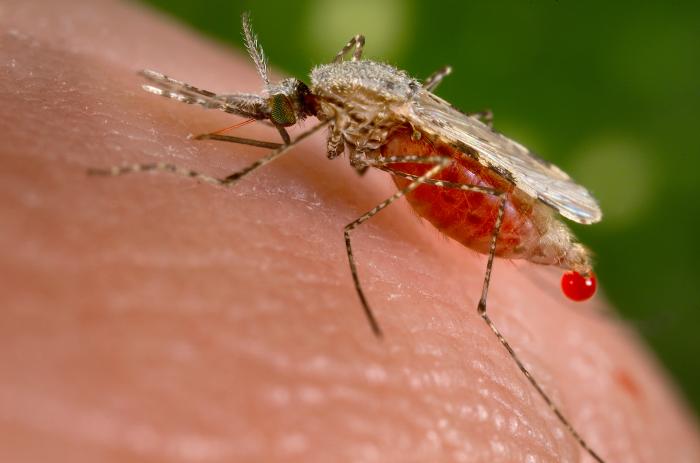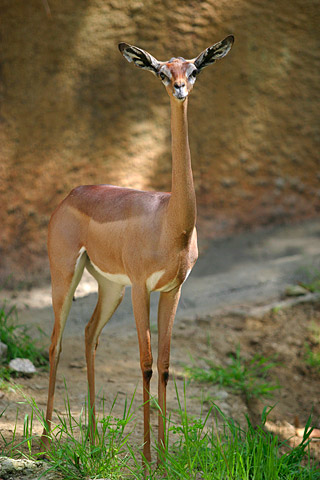
Cool Facts About The Gerenuk
- One look at a Gerenuk and you will quickly understand why their name means “Giraffe-Necked” in the Somali language (I will give you a hint – look at their long neck :))
- During the first week of birth the babies typically stay curled up in an effort to avoid predator detection
- These Gazelles can be found feeding on leaves throughout the woodland forests and dry open scrublands that occupy the landscape of eastern Africa
No Competition
The Gerenuk uses their extra long neck to reach tasty leaves high above the reach of other antelopes, which means these Gazelles never have to compete for food. If the food is really high up, these animals have been known to stand on their hind legs, use their front legs to bunch up the branches and then they chow down at their leisure. Just take a second to picture this lanky-looking gazelle standing on its legs and quickly feeding on a ton of leaves before losing their balance….this should bring a smile to your face.
Boycotting the Watering Hole
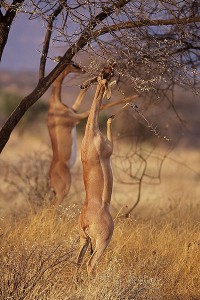
While feeding on leaves and new shoots doesn’t sound to be too exciting, it actually provides an evolutionary advantage for the Gerenuk. Believe it or not, these animals are able to get all of their required water intake from these leaves. This may not seem like a big deal until you realize that they live in an semi-arid environment. This mens they can save a ton of energy as they have no need to make long trips to the overcrowded watering hole. I guess that is why they work so hard balancing on their back legs to reach the leaves – they just don’t want to walk to the pool.
A Violent Life
If you have ever had the privilege of witnessing these creatures in the wild, you may have noticed that the males have a set of strong, curved horns. Since the male Gerenuk is extremely territorial they tend to put these horns to good use on a regular basis. These animals have been known to violently fight by crashing their dense horns together in a display of dominance. Luckily, the base of the horns are made from bone which helps absorb much of the harsh impact. Otherwise, these males would probably end up injured more often than not.

